The 10 Best Social Deduction Board Games For Lying To Your Friends

Bristol 1350
Many of us may dream of being some master spy whose silver tongue can get them out of any situation, but few of us will ever experience such a scenario ourselves. In the meantime, the closest we can get is social deduction games. Despite what the name might suggest the premise is quite simple, and in fact, if you’ve ever played Among Us you’ve already played one.
These are games where some players are secretly working against everyone else and have to sneak around in secret to sabotage their efforts before spinning a web of lies to avoid getting caught. These games range from the delightfully simple to the devilishly complicated, and we’re going to talk about the full spectrum of the best social deduction games of all time.
Saboteur
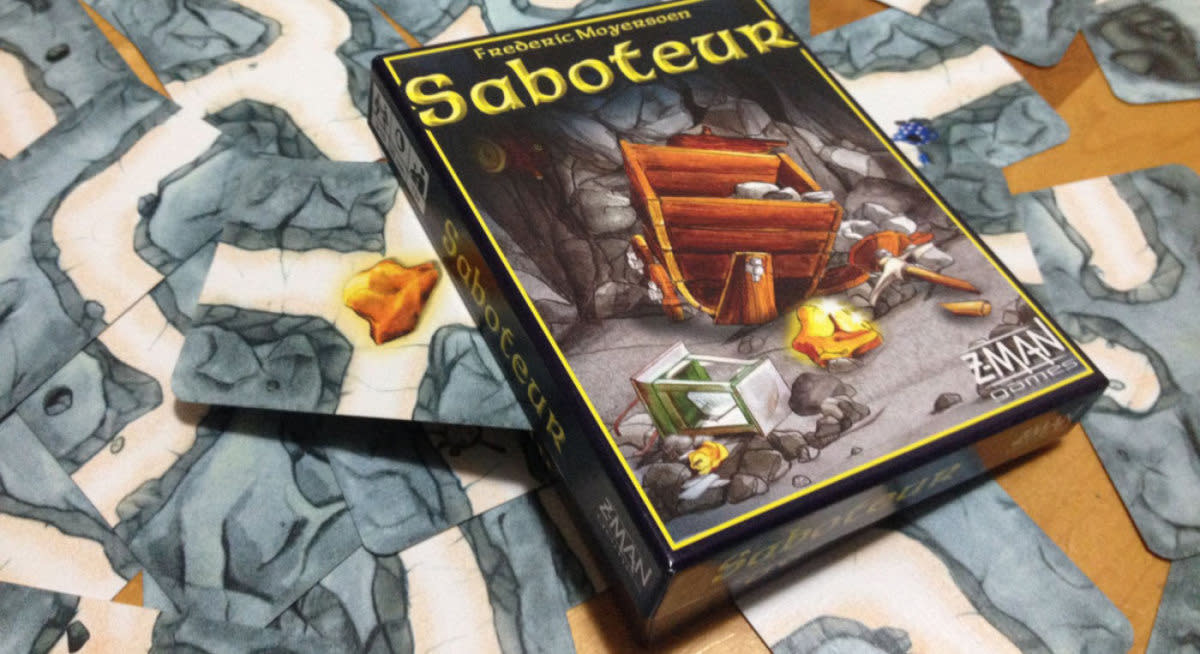
Shut Up & Sit Down
It’s off to work you go in Saboteur as you and your fellow dwarves are digging a hole to find some gold. However, some of the dwarves are trying to lead the group astray so that they can keep all the loot for themselves.
In this game, you lay cards on the table to create a path to one of three unknown objectives – one of which is the gold. It’s the job of the saboteur(s) to lead the group down the wrong path or otherwise prevent them from reaching their goal. This game has the added benefit of still allowing the saboteurs to succeed after they’ve been caught – if they’re clever – unlike other games where being uncovered is an instant game over.
Hit the Silk
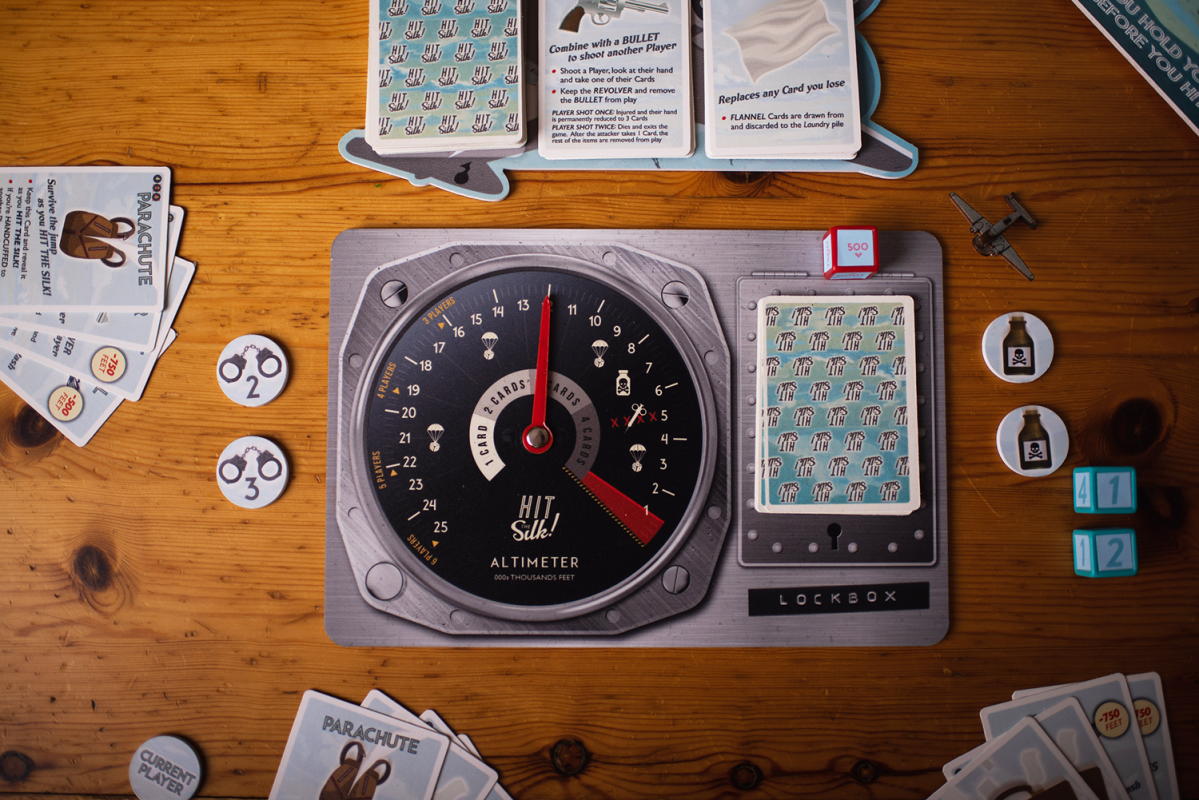
Escape Plan Board Games
Hit the Silk is a game that mixes social deduction with cooperation.
In this game, you need to work together to try and gather enough money between you to pay off your gambling debts...while on a plane that is gradually plummeting out of the sky. The thing is, there are fewer parachutes than there are people, so not all of you are getting off the plane alive.
You have to seek out both cash and parachutes, making yourself seem valuable so they want you to jump off the plane with them, but not too valuable that everyone uses the other items in the game to rob you blind. Deals will be made and quickly broken as the altitude meter slowly drops ever closer to zero and you have no choice but to jump.
The Thing: Infection at Outpost 31
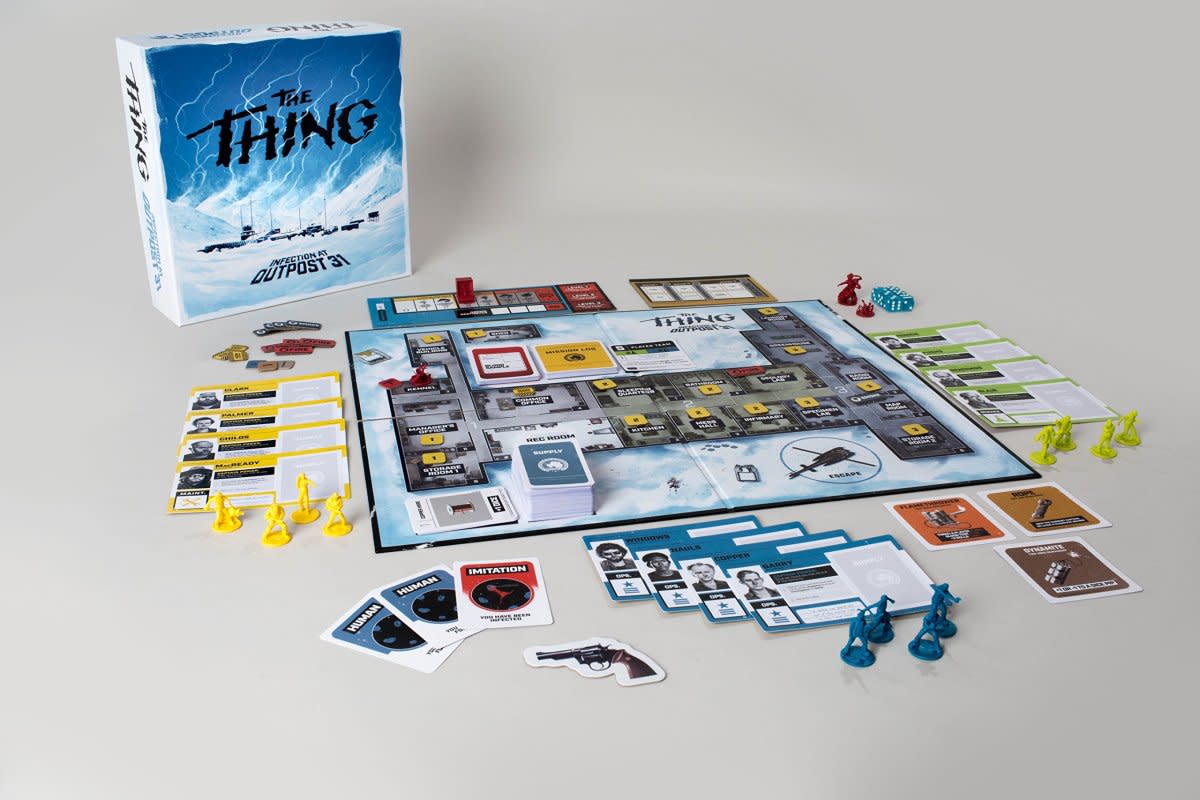
Mondo Games
This is a much heavier and longer game, but it’s all the more intense for it.
As survivors in an infected scientific outpost, it’s your job to gather supplies, keep the power running, and stay alive long enough to call a helicopter that will escort you all to safety. All the while the Thing(s) will be sneakily sabotaging your missions and trying to get you killed.
The way information unfurls in this game is perfectly paced and can create some ridiculously tense debates when deciding who to take on the helicopter at the end, as taking a Thing is an instant loss.
Spyfall

Hobby World
Switching to a lighter game, in Spyfall, everyone is handed a card with a location on it – things like an airplane, hotel, or circus – except one person, who is the spy and has no idea what the location is.
Everyone then goes around the table asking each other questions about the location, things like “What does it smell like here?”, trying to weed out which person is just bluffing with their answers. However, people are encouraged to give vague and evasive answers, because if the spy works out what the location is, they win instead.
It’s a wonderful balance where good players must be precise enough to clear themselves of suspicion, but not so precise as to give the location away – meanwhile, the spy is giving crafty and vague answers to evade detection until they can work it out.
Bristol 1350

Facade Games
This game is part social deduction, but also part race. Players will be split between three carts that are all racing to leave the city of Bristol (as we all want to do when we visit Bristol) to try and escape the plague.
It involves rolling dice to move, but also avoid “Mingling” which could potentially lead to you catching the plague – at which point your job becomes to infect or kill everyone else in the game. It means that everyone starts off with the same objective, but as the game goes on people secretly turn and the web of alliances and lies slowly implodes in hilarious fashion.
A Fake Artist Goes to New York
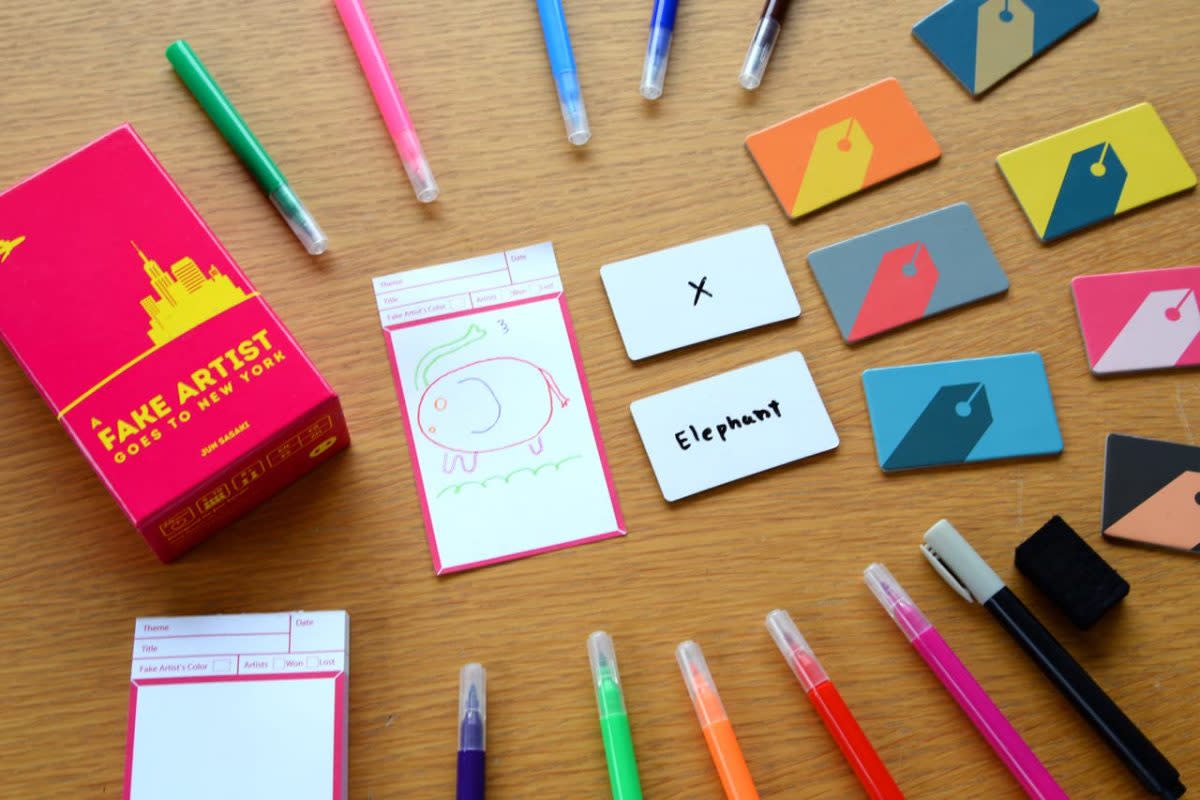
Oink Games
In this one, you’ll be lying with drawings rather than words.
Everyone gets a card with a simple object or concept on it – dog, beach, car; that sort of thing – except one person, whose card will be blank. Everyone then goes around drawing one line at a time to slowly form the image to prove they know what the object is, while the fake artist has to bluff it.
Like Spyfall, there is a mechanic where the fake artist can win by correctly guessing what the object is, so people once again have to try and keep their drawings vague, without accidentally causing people to suspect them.
Deception: Murder in Hong Kong
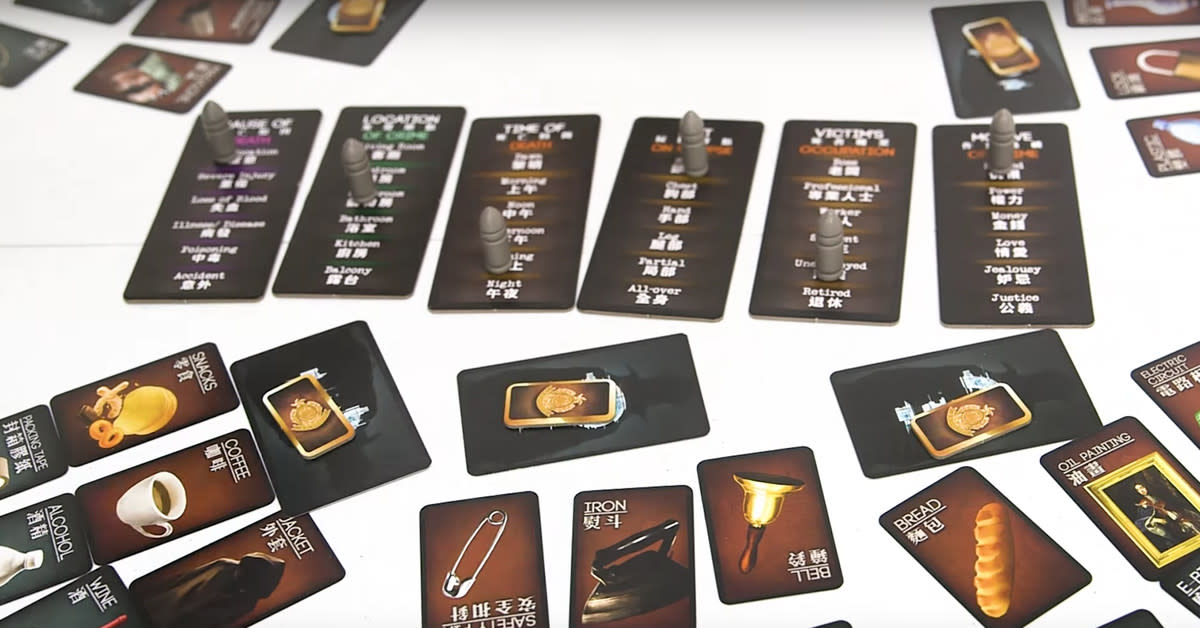
Jolly Thinkers
One of the biggest things that causes some people to dislike social deduction, is that often the loudest voices in the room can easily control the game, while quieter people are ignored. Deception fixes this by having a mechanic where, one per round, each person gets 30 seconds where only they are allowed to talk when they ask for it. It’s such a good rule, that many groups adopt it into other games regardless of what the official rules say.
Aside from that, it’s a great mystery game where one player – who can’t talk at all – uses clues to guide the good players to a player, weapon, and item at the table that was used to commit a murder.
Cheese Thief
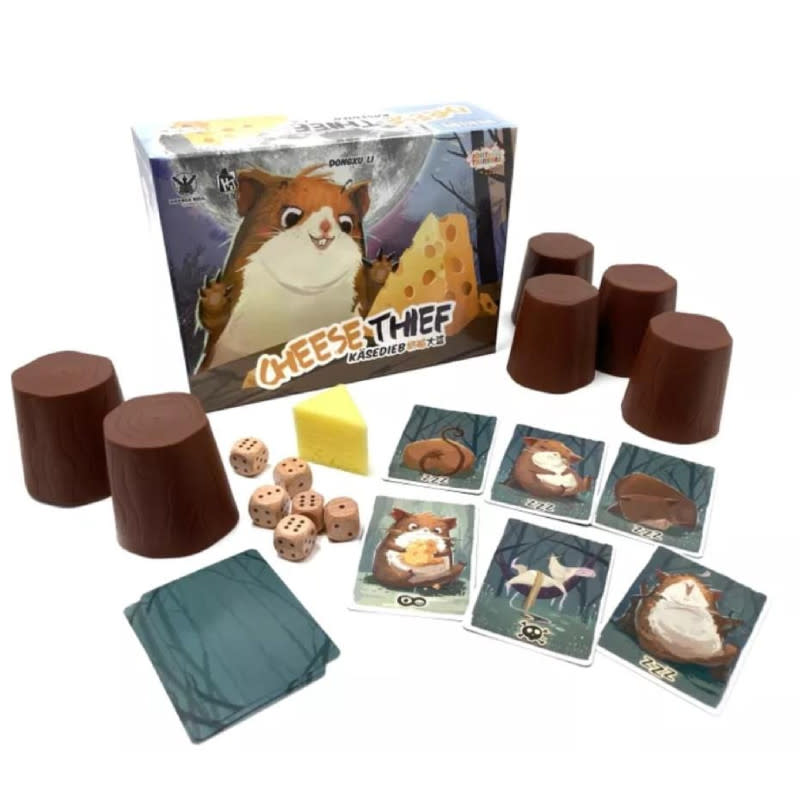
Jolly Thinkers
Cheese Thief is the best “party” social deduction game. Its rules are very simple and it takes at most 5 minutes to play.
Everyone rolls dice in secret that determines what “time” they wake up. A moderator then gradually takes players, hour by hour, through the night with each one waking up depending on what number they rolled. Good mice can check other players’ dice when they wake up, but one player is the Cheese Thief. When they wake up, they must take the piece of cheese from the center of the table and hide it on their person.
Once the night is over, everyone has a discussion and uses the information they saw to work out who the thief is, while the thief and their chosen accomplice must spread misinformation and confuse the discussion so that they get away with it. It’s an endlessly replayable game as the random elements and short discussions make it very addictive.
Secret Hitler

Goat, Wolf & Cabbage
One of the more popular modern social deduction games, and easily one of the most enjoyable.
Players are secretly split into Liberal and Fascist factions, with one of the fascist players also secretly being Hitler. Each player then takes a turn being president and the group must elect a chancellor to serve alongside them. The president then draws three cards from a deck of policies – these will either be Liberal or Fascist cards – the president eliminates one policy before passing the other two to the chancellor, who picks one to enact.
The Liberals will by enacting 5 Liberal policies or killing Hitler, while the Fascists win by enacting 6 Fascist policies or getting Hitler elected chancellor after 3 Fascist policies are enacted.
The layers of having both the president and chancellor implicated in every decision make deducing who the bad guys are devilishly tricky, as maybe the chancellor chose to play a Fascist policy of their own accord, or maybe the president forced them into it. These debates inevitably spiral out into a whole network of distrust and misinformation.
It’s a joy for both sides to play, as the good players get to the bottom of a complex mystery, and the evil players get the thrill of establishing a web of lies to tangle up their opposition.
Blood on the Clocktower
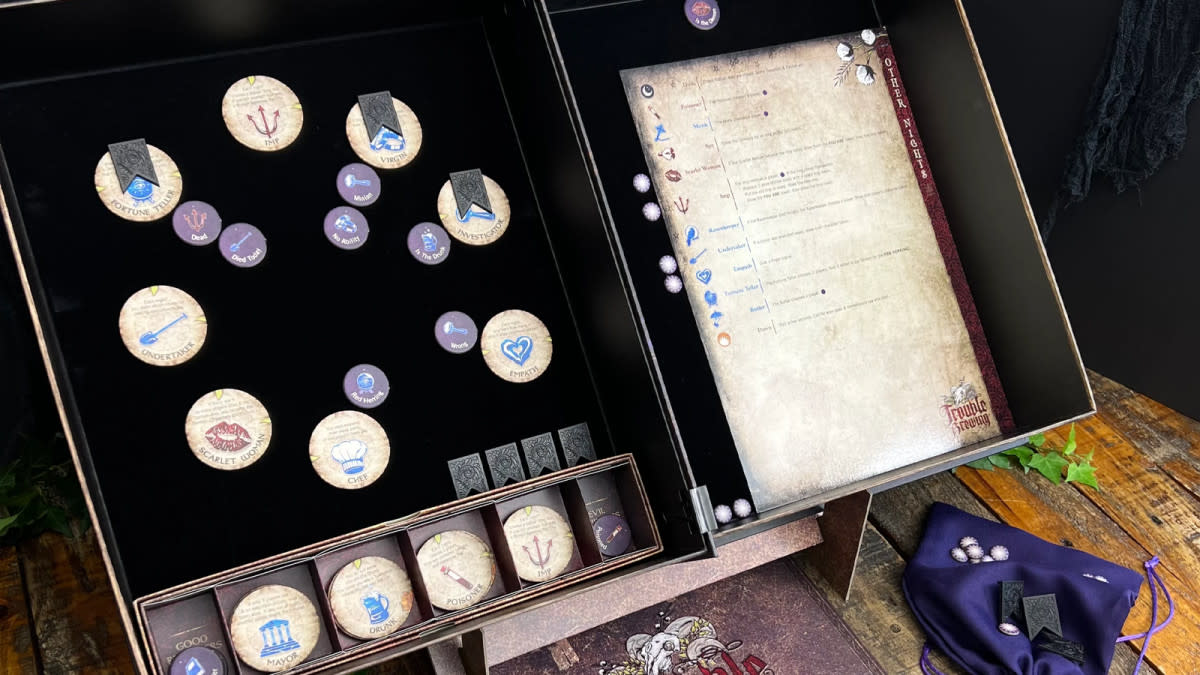
The Pandemonium Institue
Werewolf is one of the most well-known social deduction games – which is why we didn’t include it on this list. Blood on the Clocktower is like if someone took Werewolf, fixed some of its weaknesses, and added a healthy helping of complexity.
Like Werewolf, good players are trying to find and execute evil players, but in this case, it’s just one demon they need to find. There are a few twists on the formula that make it a genius game though:
During the day phase, players are allowed to leave the circle and have conversations in private – allowing information to be shared sparingly, rather than all or nothing.
Everyone has a special ability, both good and evil players. Some of these gather information about other players, while some have active effects on the game, like how others’ abilities work.
When a player dies they lose their special ability, but can still talk and participate in the game – this avoids the annoying scenario where you die first in a game of Werewolf and have to sit in silence for half an hour watching the rest of the game play out.
Some abilities require the GM to make decisions on how they affect game, letting them better balance each team’s performance to make the game as close as possible.
It can be a long and often intense game, but it’s the kind of game you come away from with stories to enthusiastically tell people.
It captures the core of what social deduction is about, letting you feel like a genius as you unravel a mystery before your very eyes, letting you share intimate social experiences in a fun and safe space, and most importantly of all, letting you betray your friends and see the heartbroken look in their eyes as they realize you’ve played them – or maybe we’re just cruel.
